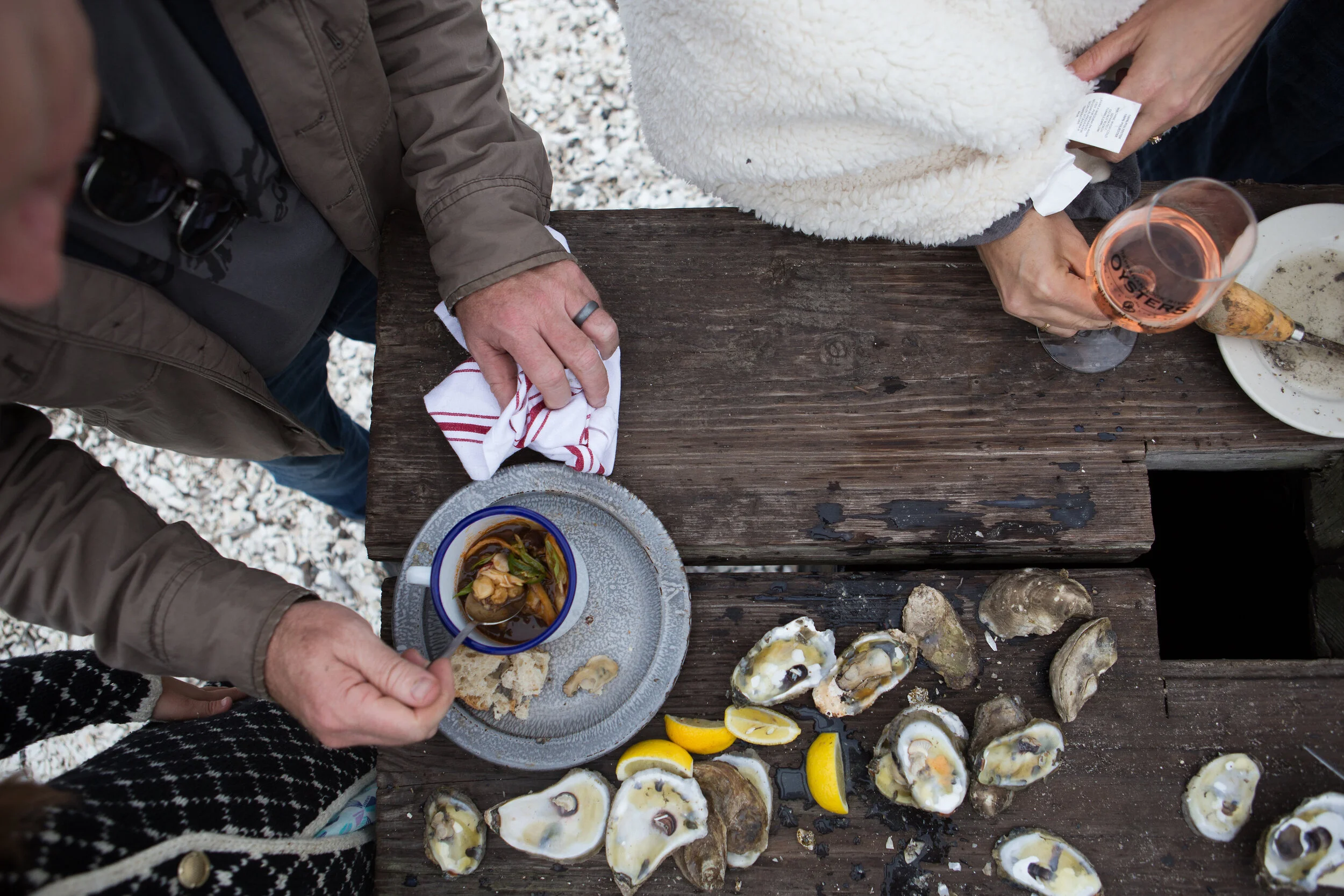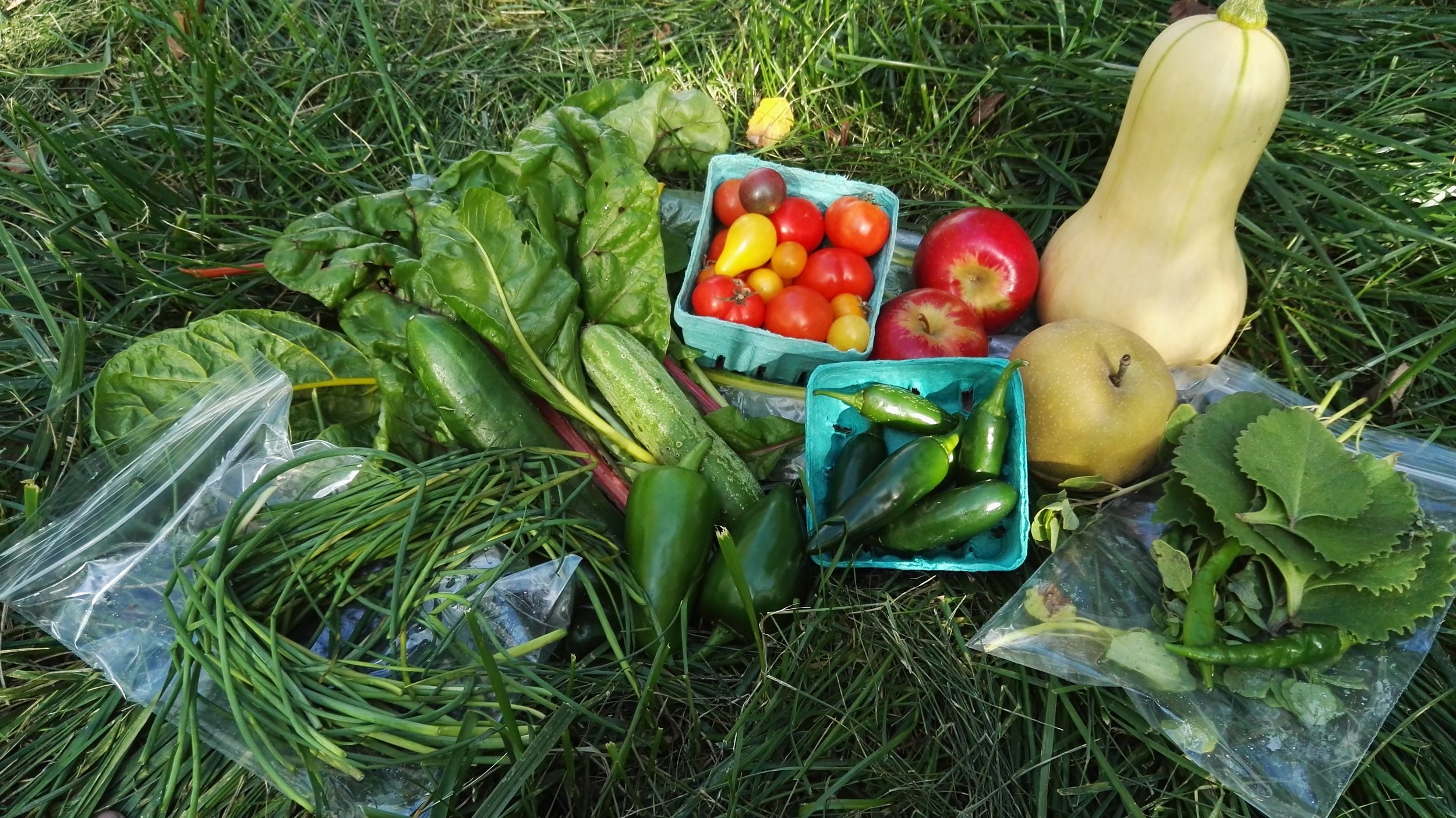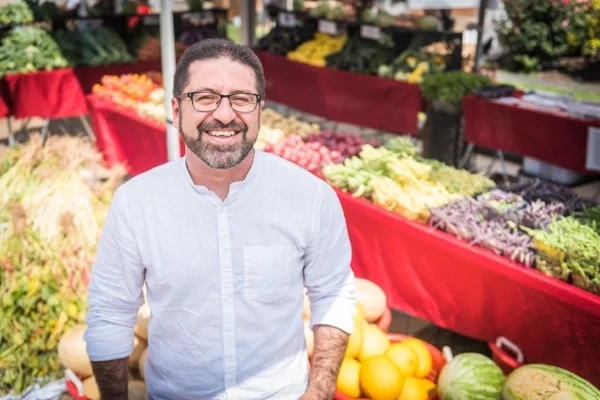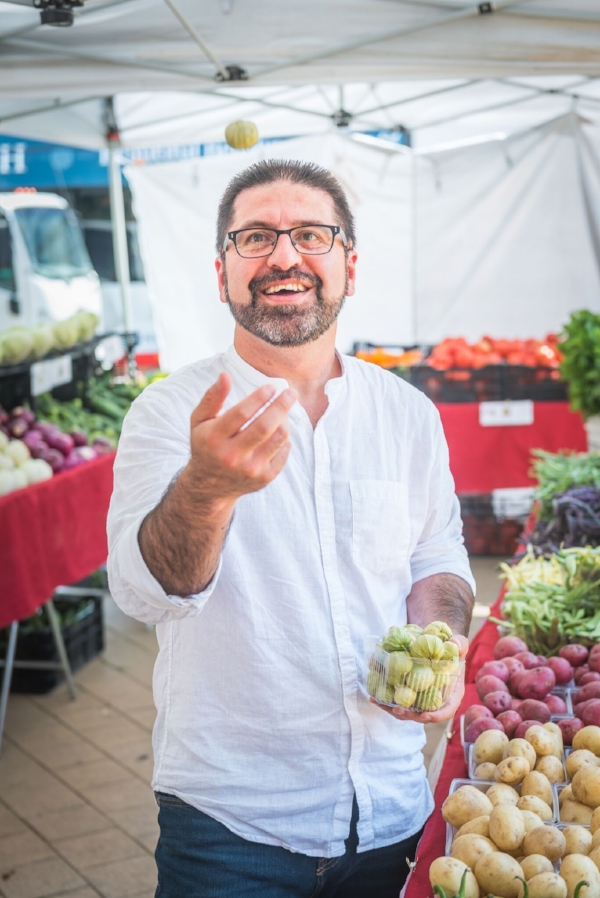12 Great CSAs in the DC Area
/Get on board with fresh produce delivery, here’s how to join
By Jessica Wolfrom, Edible DC Contributor
It’s never been easier to live in a city and eat like a farmer.
In the District, we are spoiled year round by the many farmers markets and restaurants that celebrate the bounty of regional cuisine.
But if the winter chill has kept you away from the markets (and it shouldn’t—there is still wonderful winter produce and farmers to support), there’s another way to connect with farmers from the comfort of your home — let them bring the farm to you.
February 22nd is CSA Day, a celebration of our local foodsheds and a call to action to support the farmers who make our seasonal and regional food possible.
CSA, which stands for Community Supported Agriculture, is a system that connects the farmer with the consumer more directly by circumventing the grocery store. It’s essentially a subscription service for produce, meats, and dairy, delivered straight from the farm to your door.
The money you pay up front supports the harvest of that farm for the entire year. Think of it like a down payment on your health; invest in your farmer, and eat healthier all year. (Not to mention eating local reduces your carbon footprint.)
[And in more happy CSA news—we’ve learned that Imperfect Produce, a company founded to help combat food waste by taking fresh, delicious produce that normally wouldn’t sell because it might be misshapen or have a harmless bump and saving it from landfill. Founded University of Maryland grad Ben Simon, Imperfect Produce has now grown nationally and is now delivering to the MD/DC area. Check their website to see if they are delivering to your neighborhood.]
Here are twelve local food delivery and CSA’s we love, and news on another new CSA. And you will too. Take it from us, nothing makes you happier than coming home to a box of fresh produce. The the names of the CSAs are linked to their websites for for information on how to join and additional details.
This month, do good for your body and your community by registering for a CSA.
Windy Hill Farm CSA (Single farm CSA)
Offers CSA pick-up in Chevy Chase, DC as well as limited local delivery. Windy Hill Farm also offers reduced cost CSA shares to low-income community members. More details on how the CSA works here.
Second Spring Farm CSA (Single Farm CSA)
Operates May - November and offers a plethora of pick up locations including Leesburg, Reston/Herndon, Oakton, Vienna, Ashburn, Arlington, Springfield, Glen Echo, Takoma Park, Bethesda, Columbia Heights, and at the farm in Purcellville. You have the option for a small or large size box that includes plenty of recipes.
Owl’s Nest Farm CSA (Single Farm CSA)
Offers organic produce from their farm in Upper Marlboro, MD. Pickup locations are offered in Bloomingdale, Brookland, Columbia Heights, and Petworth, DC, and on the farm in Upper Marlboro, MD.
Even’ Star Organic Farm (Single Farm CSA)
Certified organic vegetables, fruits and herbs offered Bethesda, Alexandria, South Arlington, North Arlington, Takoma Park, University Park, Chevy Chase, Rockville, Lexington Park, Leondardtown, and Waldorf.
Clagett Farm (Single Farm CSA)
Operates May - November pick up offered in Dupont Circle for $700 and helps support their ability to donate 40-50% of their produce to area soup kitchens.
4P Foods (Network of Farmers)
Example 4p Foods spring box! (Photo credit Abbey Gleason)
4P isn’t just one farmer, it’s a network of farmers. The 4P team delivers produce, meat, and dairy from environmentally responsible family farmers in the DMV foodshed. Not only will you receive food from a variety of farmers, your subscription will feed others — for every 10 bags it delivers, it will give one to local food banks including Fauquier Food Bank, Local Food Bank Partners and YMCA Capital View.
Cultivate the City (Single Farm CSA)
Cultivate the City is part urban farm, part education program, part garden center. Its CSA program sources food from both its H Street Farm and school gardens like Miner Elementary, Gallaudet University and IDEA Public Charter School. Your subscription will support farm programming and garden activities for youth in schools around the District.
In addition, any extra produce that isn’t picked up is donated to local food pantries, reducing food waste and providing for community members who otherwise may not have access to healthy foods.
Little Farm Stand (Network of Farmers)
Little Farm Stand proudly claims to be the “most flexible CSA in Washington D.C.,” allowing its members to choose up to 90% of their weekly shares. With a focus on local, organic produce and Virginia raised grass-fed beef, this CSA is perfect for picky eaters and locavores alike.
Lancaster Farms Co-Op (Co-Op)
Lancaster Farms is a co-op of multi-generational families bringing Certified Organic, chemical-free produce and humanely raised meat to the DMV from their headquarters in Lancaster County, Pennsylvania. Its motto is “locally rooted, sustainably minded” and this ethos penetrates every part of their business. Choose the size of your weekly share, and find a pick-up location that works best for you. This model encourages new communities to take root around its food, and your subscription helps continue Lancaster’s farming traditions for generations to come.
From the Farmer (Network of Farmers)
From the Farmer was started in 2010 by two friends-turned business partners who met at the University of Denver. From the Farmer delivers fresh farm boxes to the Washington D.C. area with an emphasis on local, organic and seasonal produce, meats, seafood and other artisanal treats.
You can customize your farm box based on your gastronomic allegiances — electing for example, an all veggie box or an all fruit box — and you can eat happy knowing that 50% of every dollar goes directly back to the farmer or maker.
Washington’s Green Grocer (Network of Farmers)
Photo courtesy Washington’s Green Grocer
If you are iffy about commitment and overwhelmed by what to do with kohlrabi, then this is the perfect CSA for you. Not only does Washington’s Green Grocer allow you to customize your box up to 9 PM the night before delivery, it doesn’t require a weekly commitment. To help the less adventurous home chefs explore the bounty of our regional foods, its website doubles as a repository of recipes for its seasonal produce. It also offers free delivery to Delaware, Maryland, Virginia and D.C. on all farm boxes over $40.
FRESHFARM Farm Share (Network of Farmers)
While not a traditional CSA, FRESHFARM is re-thinking the food supply model by offering a farm share program that supports local farmers and food artisans in the mid-Atlantic region. It doesn’t deliver to your doorstep, but if you are the type who frequents farmers markets around the district, this is the share for you. It’s all the fun of the farmers market without the stress of fighting over those last-of-the-season strawberries. Its share season runs from mid-May through the end of October and you can choose to subscribe to a half season (12 weeks) or a full season (24 weeks).
Jessica @jessicawolfrom is a freelance writer covering food, wine, farming and the environment in and around Washington D.C. She's also a graduate student at Georgetown University, getting her masters in journalism. When she's not in school, you can likely find her sipping on something sparkling somewhere in the District.










